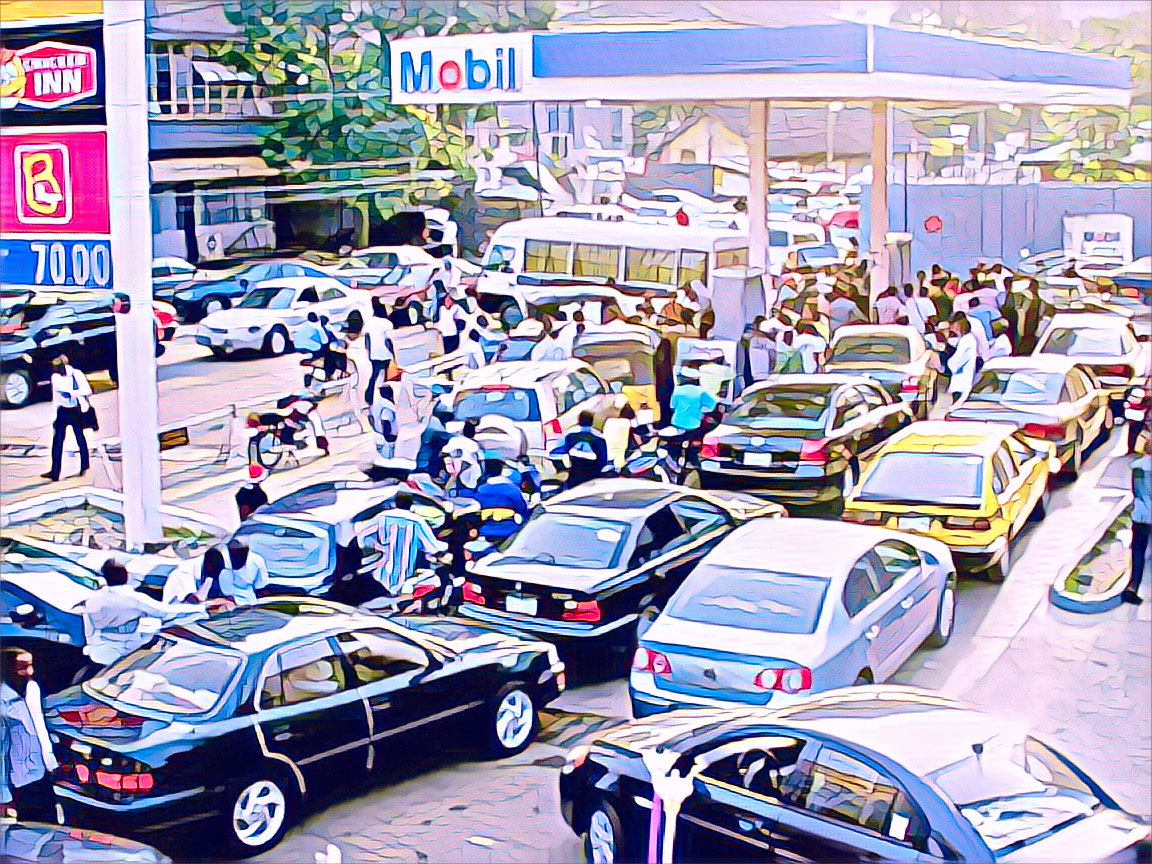Nigeria’s petrol subsidy program under President Bola Tinubu has consumed a staggering N1.5 trillion, exacerbating the country’s ongoing fuel scarcity crisis. Despite the substantial expenditure, long queues at fuel stations persist, and the supply of petrol remains erratic, causing frustration among citizens and disrupting daily life.
The N1.5 trillion spent on subsidies since Tinubu took office reflects the government’s struggle to maintain affordable fuel prices while managing the financial burden of subsidizing petrol. This significant outlay, intended to cushion consumers from high fuel costs, has yet to resolve the widespread scarcity that has plagued Nigeria in recent months.
Fuel shortages have worsened in many parts of the country, with motorists spending hours in line to fill their tanks, and some stations completely running out of petrol. The scarcity has also led to a thriving black market, where fuel is sold at exorbitant prices, further straining the finances of ordinary Nigerians. The high cost of petrol on the black market is pushing up transportation costs, contributing to inflation, and affecting the prices of goods and services across the economy.
President Tinubu, who has faced mounting criticism over the handling of the fuel subsidy and supply issues, has reiterated his administration’s commitment to finding a long-term solution. The government is considering various strategies, including refining more crude oil domestically and reducing reliance on imports, to address the supply chain issues at the root of the scarcity.
However, experts and industry stakeholders are divided on the effectiveness of the current subsidy regime. While some argue that subsidies are necessary to keep fuel prices affordable for the average Nigerian, others believe that the system is unsustainable and prone to corruption. The ongoing subsidy program has drained government resources, which could have been allocated to critical sectors such as healthcare, education, and infrastructure.
Economic analysts have warned that the continued reliance on subsidies could have dire consequences for Nigeria’s fiscal health, especially given the country’s already high debt levels and other pressing economic challenges. They suggest that the government should consider phasing out the subsidy in favor of targeted interventions that directly benefit the most vulnerable populations.
In response to the worsening scarcity and the economic toll of the subsidy, some government officials have hinted at the possibility of deregulating the downstream sector. Deregulation could lead to the removal of fuel subsidies, allowing market forces to determine prices. While this move could stabilize supply in the long run, it would likely lead to an initial spike in fuel prices, which could be unpopular among consumers.
The ongoing fuel scarcity and the government’s massive spending on subsidies highlight the complexity of Nigeria’s energy sector challenges. As the country grapples with these issues, the pressure is mounting on President Tinubu to deliver on his promises of economic reform and improved living conditions for Nigerians.
Source: BusinessDay


